- Home
- Captain W E Johns
03 Now To The Stars
03 Now To The Stars Read online
1 Prelude to adventure A scientist once remarked that with so many people in the world there would always, at any moment, be two doing the same thing and thinking the same thought.
Rex Clinton, sitting on a kitbag in the moonlight, surrounded by a sea of heather in the remote Highlands of Scotland, would have disputed this. He would have declared that no one was doing what he was doing, or sharing his thoughts; and in this conviction he would have been justified, for what he was actually doing was waiting for a spacecraft to take him to Mars: and as for his thoughts, his mind was running on the people he knew on that planet - and, indeed, on the planetoids beyond.
It is true that these worlds and the people on them were known to a few other people; Group-Captain 'Tiger Clinton, his father; Doctor 'Toby'
Paul, his father's friend; and Professor Lucius Brane, whosècosmobile'
(as he called it) the Spacemaster, had made their interplanetary flights possible. But they were busy checking the materials and equipment that had been promised to certain people who were engaged in the formidable task of making Mars once more habitable after the overwhelming disaster that had swept away almost every form of life, human, animal and vegetable.
Let it not be supposed that Rex's thoughts were entirely cheerful. In a way he was looking forward to the coming voyage, and would not have been left behind; yet he was also aware of the heart-shrinking fear that would grip him when he saw Earth, with all the things he knew and understood, diminish to a flickering spark of light before fading altogether in the awful empty spaces of the Universe.
He was older than when he had made his first voyage to the Moon, not only in age but in outlook. He felt that he had lost something - something to do with the emotion of wonder, or surprise. Nothing could really be wonderful any more because, as he perceived, nothing was impossible. That word could be used only in a local sense. On Earth a butterfly with a wing spread of ten feet was impossible simply because such insects did not occur on Earth, although elsewhere that might be the normal size. On Mars a whale would be held equally impossible, because there were no whales. Once one accepted that, he reflected, then nothing was impossible. Conversely, anything, however fantastic, became possible.
Rex wondered what impossibilities they would encounter on their coming voyage. Even on Earth, he pondered, as men discovered new lands they found new creatures, some of which strained the credulity - flying fish and fish that climbed trees, for example. If such discoveries could be made on Earth, what might be expected from other worlds?
Such thoughts as these, and the knowledge he had acquired, had not only changed his whole outlook on life but in some curious way seemed to have isolated him from those people who still believed that in all the Universe there was but one world - their own.
There were times when he wished he could share their ignorance and think of the world as he had when a small boy; a beautiful place of land and water, of hills and valleys, of trees and flowers, with its own sun and moon and stars destined to float for ever in a sky serenely blue. Now he knew that this was not so, although, to be sure, Earth was still the most perfect of all the worlds he had seen. But he knew that it was only one of a million heavenly bodies rolling round their eternal orbits where such words as time and weight and distance were meaningless; where, by a whim of that incomprehensible force called gravity, a world could disappear in a flash, as utterly as a pinch of gunpowder cast into a furnace.
The thought that the Earth he loved, and everything on it, all the work that men had ever done, might vanish as if it had never existed, depressed him terribly; and for that reason it angered him that a few men, having in their curiosity discovered how to break the atoms of which all matter is composed, should risk annihilation, not only of themselves but of others. This was what they called the March of Progress, and apparently nothing could stop it.
His eyes turned from the sombre landscape to the star-studded dome of heaven.
Disillusionment, he felt, was his punishment for curiosity, as it so often is. No longer was that friendly disc, the Moon, a beacon put there to shed a gentle radiance after night had taken possession of the land.
He knew it for what it really was; a mass of meteor-blasted rock and sand which, when not a desolation of frozen sterility, was a wilderness flayed by the merciless sun.
Twinkle, twinkle little star! Never again would he wonder what they were.
Never again could they be like diamonds in the sky; for he had stood on some of them and knew the unromantic truth - knew that he himself, at that moment, was sitting on just such a star. It seemed a sad thing to shatter the old illusion. Yet there were compensations. Had he not been to Mino he would never have known Morino, the girl who had laughed at his clumsy efforts to fly on her wings.
His eyes wandered to the planet that was to be their destination. It was a pity, he pondered bitterly, that the nuclear experts, so busily engaged in their work of destruction, could not see the fragments of the lost Kraka, torn asunder by a lunatic experiment.
Jupiter still smouldered from that same devastating explosion: Saturn, girdled by atomic dust that had yet to settle: Mars, almost stripped of its air, water and vegetation, by the stupendous blast. But then, mused Rex, if the Professor revealed these sobering facts, who would believe him? Very few. Least of all those to whom the warning should be directed.
Not even the reporter who had seen them land on their return from Mars, and could therefore tell the most sensational story of all time, had dared to utter a word for fear of being called a madman or a liar. The truth was, Rex supposed, the people of Earth were not yet ready for interstellar flight. A comparatively young civilization, they had barely recovered from the shock of ordinary flight. Well, one day they would have to accept it, whether they liked it or not.
Nevertheless, public opinion had swung from incredulity to questioning suspicion during the past few months. There had been much talk of 'Flying Saucers' and the like. People, not one person but many, had seen objects in the sky for which no acceptable explanation had been forthcoming.
Unidentified Flying Objects the newspapers called them. Why should people be so loath to accept the truth? wondered Rex. Radar screens do not lie.
They can only reveal what is there. They cannot register an object that is not there.
This sort of publicity had upset the Professor who suspected that the Spacemaster was to some extent responsible for it, although his was not the only spacecraft that had visited Earth. He also suspected that his base at Glensalich Castle was being watched, for which reason he had decided against building another ship of his own. Instead, when he was ready to leave Earth on another extra-terrestrial survey flight it would be in the ship captained by Gator Faro, of the Minoan Interstellar Exploration Squadron. Gator had promised to come within sighting distance of Earth at regular intervals to watch for signals. Well, the signal had been set, and the astronauts were waiting for the 'Saucer' to arrive.
Rex hoped the same ship would come; the one that had brought them home after their own craft, the Spacemaster, had collapsed in space as a result of metal fatigue. Rex still shuddered at the memory of that awful shipwreck, in the dreadful silent vacuum, that pitiless void, that occurs between the bodies of the Solar System.
What other ships might have come within Earth's atmosphere he did not know, unless they were units of the Remote Survey Fleet commanded by the ambitious Rolto Mino, who had advocated the conquest of Earth as an alternative to the restoration of Mars, to solve the Minoan overcrowding problem.
Such were Rex's thoughts as he sat on the desolate Scottish moor awaiting the arrival of the craft that would take them and their luggage to Mars, and, if the Professor had his way, beyond. For the Professor's grea
t ambition now was the exploration of the planetoids, a project that might well occupy him for the rest of his life. And that would only be a beginning. Beyond lay worlds without end, the exploration of which would occupy men till the end of time itself.
The preparation of those things which were to help in the restoration of Mars had been the Professor's chief occupation for three months, for, as he averred, the introduction of any form of life into new conditions was an experiment that called for caution. There had been demonstrations of this on Earth, notably in Australia, where the rapid multiplications of the common wild rabbit had become a serious problem. Already one example had occurred on Mars, where a special insecticide, intended to destroy the malignant mosquitoes, had accelerated the growth of all forms of life to an incredible not to say alarming - degree.
Tools and inanimate objects, such as spacesuits, did not matter. The Minoan suits were better, but were not fitted with radio. And no machinery was included, for the Martians would have none of it, having learned a bitter lesson in the distant past when, in their machine age, the people found they were on their way to becoming the slaves of what were intended to be labour-saving devices. The Professor said he was thinking particularly of seeds, seeds of trees for re-afforestation and vegetables for food. There was a hamper of young ducks, and another of chickens.
These, by their eggs, it was hoped, would also help to solve the food problem. Eggs, for a stock of birds, would have been easier to carry, but there might have been some difficulty in hatching them. Whether the birds would live or die, or, if they lived, how they would develop in the novel conditions, was a matter for conjecture. Rather against the Professor's advice Rex was taking Morino a kitten. The whole business, he thought, was reminiscent of Noah's Ark.
His reverie was broken by the arrival of the rest of the party, including Judkins, the Professor's butler-mechanic, who had only come to see them off, for as his services would not be required he was to remain at the castle to deal with inquisitive visitors. Rex reported that he had seen no sign of the spaceship. 'I hope they don't land in the wrong place,' he added anxiously.
`That shouldn't happen,' answered the Professor confidently. 'The green lights are on, as we arranged, and both Gator and Vargo, who will I expect be on board, have seen the place. Vargo came home with us, you remember, for that express purpose. The night is still young.'
Ì think they're coming now,' said Tiger. 'A moment ago I saw a star blotted out. As there are no clouds, that could only mean an aircraft of some sort. Whatever it was it isn't showing navigation lights so it can't be an ordinary plane.'
Ì can see it - I can see it. Here they come!' exclaimed Rex suddenly, a surge of excitement in his voice.
Presently they could all see it, a black, mushroom-shaped object silhouetted against the pale light of the sky. It grew larger, quickly, silently. The Professor raised an arm, and the beam of a torch cut a wedge of green light in the darkness.
A minute or two later a dark shadow settled with no more noise than a parachute close beside them.
As they hastened towards it the door of the airlock chamber was opened and a tall slim figure stood clear cut against the eerie luminosity of the 'Saucer's' interior.
`Vargo,' called Rex, delightedly.
`Rex,' answered the Martian, in his thin, precise voice. He stepped down, and was soon shaking hands with them to show that he had not forgotten their method of greeting. He was breathing heavily. 'Excuse me,' he said, tapping his chest. `Your air is strong before I am used to it. My lungs are perhaps too big. Also, here my legs become lead. You are ready to come?'
Èverything is prepared,' replied the Professor briskly. `Good. Then I will ask Gator to make quick the loading.' `This is a bigger ship, isn't it?' queried Rex.
`Yes. A new one. Gator has just fetched it from Ando.' `How are things on Mars?' asked Tiger, as the luggage was stowed.
`Things go well,' stated Vargo. 'When you come things will go better.'
`Have you been to Mino lately?' asked Rex, with affected carelessness.
`Yes, I was there to report progress to the High Council. A friend of yours there was asking if I had been to Earth.' `Morino?'
`Yes. If I see you I am to say she has a new pair of wings waiting for you.'
`You can talk of these frivolities later,' broke in the Professor. 'Let us get away before some interfering busybody comes along and asks questions. By the way, Vargo, did you find my poor old Spacemaster on your way home?'
'Yes, it was still where we left it,' answered Vargo. 'Not that it could be otherwise. We dare not leave it there to be a danger to other ships.'
'You said you would take it in tow and cast it off to fall on Phobos, where it could do no harm,' reminded Rex.
'True. But Gator thought you might wish to examine it for the cause of the failure, so on second thoughts we took it to Mars, where you will find it.'
'Capital!' exclaimed the Professor. 'I would indeed like to see the state of the metal.'
The steel in which you put your trust now crumbles in the hand like old wood,' declared Vargo. 'Our orichalcum lasts for ever.'
'What about the mosquitoes?' inquired Rex.
'All that were near our town which you call Utopia, and which we now call Utopia in your honour, have disappeared. We think they grew too big too quickly, and died from not having strength to live. The same with most of the other creatures which lived in the swamps of the old canal, now being reopened by our workmen. The problem is food. We need little, but we must have some, and it must come from Mino or Lentos. With more ships there will be more food, and with more men the work will go faster. But you cannot repopulate a world, that has long been dead, in a single sun cycle. One thing you will be pleased to know for your comfort, there is more air for breathing.'
'More air?' echoed the Professor. 'Where is it coming from?'
The planet must be collecting some from space,' answered Vargo. 'We, from our travels, knew of places in space where air could be found, always moving slowly towards the nearest orbit. That which was lost from Kraka, and taken from Mars, had to go somewhere. You may have lost some from Earth by your great explosions. On every planet the air becomes more or less. Some is collected. Some is dragged away by comets, passing close.
Some, our scientists say, is released from holes which are made in the ground.'
'Very interesting,' murmured the Professor.
By this time the work of loading was complete. Judkins waved goodbye and stepped back. The airlock doors were closed. Rex strapped himself in his seat. The crew took their stations. In the queer unnatural light, with their shining skins and strange luminous eyes, they now looked what they were - men from another world.
The Professor said to Vargo, while pressure was being adjusted: 'Please spare us as much discomfort as possible in the early acceleration. We are in no hurry.'
'It shall be slow,' promised Vargo.
A minute later the ship began to move, and Rex braced himself for the strain that would crush him into his seat as the spacecraft gained escape velocity.
In the event it was not too bad, and in twenty minutes he was able to relax, unconscious of any feeling of movement although he knew they were shooting through the void beyond the Earth's atmosphere at a speed approaching that of those mysterious cosmic rays from which the ship derived its motive power, or as the Martians called it, Energy.
Eventually, he thought, the scientists on Earth would capture that same power. They knew about it, and it was in pursuit of it that they had unfortunately found the path that had led to the atom bomb. The exigencies of war had distracted them from their original purpose, and put them on a road which might cause Earth to follow Kraka to oblivion.
He turned his head slowly to the observation window and saw that Earth was already a section of a mighty globe. The part they had left was still in darkness, but across Asia was creeping the dawn of another day.
2 Borron tells some tales
Long before the
spaceship - which they learned had been named Tavona after a friendly Outer Star - touched down on Mars, Rex could see the scar near Utopia that marked the spot where the canal was being reopened to provide a water supply for the prospective immigrants who, he thought whimsically, would be 'displaced persons' in the widest possible sense.
But then, he reflected, given spaceships, the transport of people from world to world was no more trouble than from continent to continent on Earth.
The scar was little more than a straight black line comprising the actual channel and the ground prepared for cultivation on either side of it; but it was conspicuous by reason of the dull uniformity of the rest of the planet. For this, the absence of physical features, mountains, valleys and rivers, was largely responsible. He wondered how long it would be before the scar was spotted by some sharp-eyed astronomer on Earth. The discovery would give the experts something to talk about. They would have to ascribe to it some form of life, for while nature unaided can make marks, and often does, it seldom draws straight lines.
As the ship sank through the thin dry air towards the central landing square, on which two spacecraft were already standing, details became more clearly defined, and Rex was surprised to see how much work had been done. This was explained by the number of upturned faces, both on the square, where the silted dust of ages had disappeared, and on the banks of the canal. The result was an atmosphere of life and activity instead of the death and desolation that had possessed the place on the occasion of their first visit. The jungle still marked the course of the canal towards the Pole, but of the insect hordes there was no sign. All this, pondered Rex in a sort of wonder, was the work of one man. The Professor.

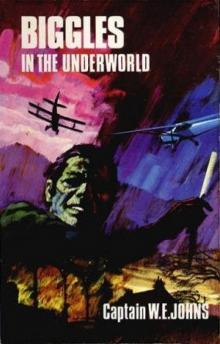 Biggles in the Underworld
Biggles in the Underworld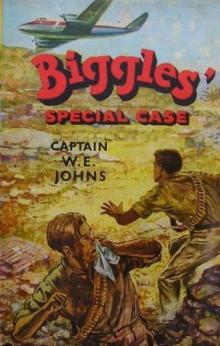 Biggles' Special Case
Biggles' Special Case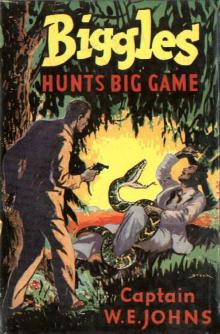 34 Biggles Hunts Big Game
34 Biggles Hunts Big Game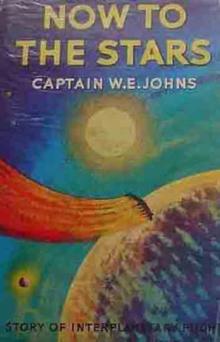 03 Now To The Stars
03 Now To The Stars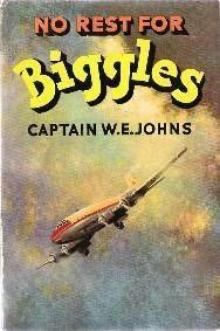 55 No Rest For Biggles
55 No Rest For Biggles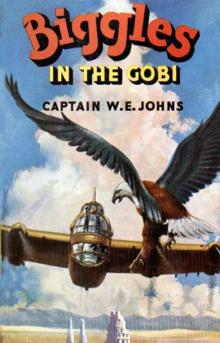 46 Biggles in the Gobi
46 Biggles in the Gobi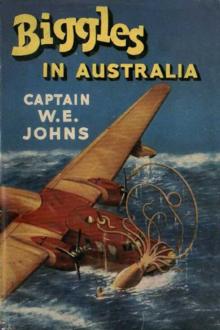 52 Biggles In Australia
52 Biggles In Australia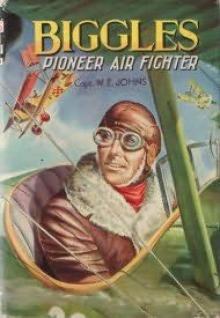 51 Biggles Pioneer Air Fighter
51 Biggles Pioneer Air Fighter 05 Biggles Flies East
05 Biggles Flies East 28 Biggles In Borneo
28 Biggles In Borneo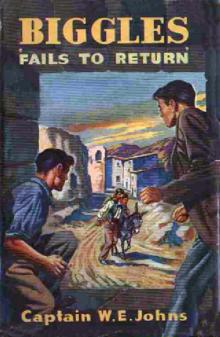 29 Biggles Fails to Return
29 Biggles Fails to Return 55 No Rest For Biggles (v2)
55 No Rest For Biggles (v2) Biggles Does Some Homework
Biggles Does Some Homework Biggles of the Camel Squadron
Biggles of the Camel Squadron 35 Biggles Takes A Holiday
35 Biggles Takes A Holiday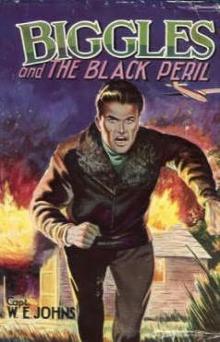 Biggles And The Black Peril (06)
Biggles And The Black Peril (06) 17 Biggles And The Rescue Flight
17 Biggles And The Rescue Flight Biggles Learns To Fly
Biggles Learns To Fly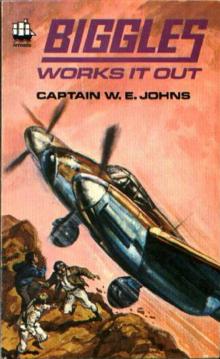 40 Biggles Works It Out
40 Biggles Works It Out 05 Biggles Learns To Fly
05 Biggles Learns To Fly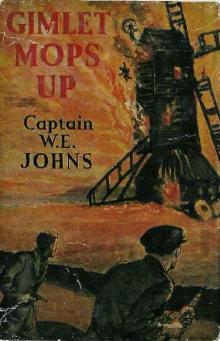 04 Gimlet Mops Up
04 Gimlet Mops Up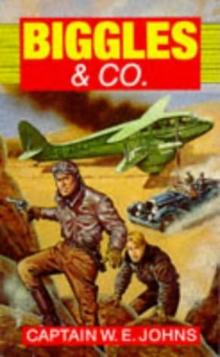 10 Biggles and Co
10 Biggles and Co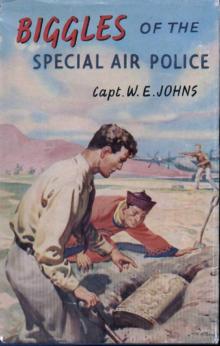 47 Biggles Of The Special Air Police
47 Biggles Of The Special Air Police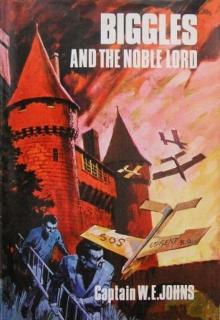 Biggles and the Noble Lord
Biggles and the Noble Lord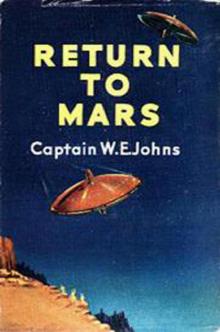 T2 Return To Mars
T2 Return To Mars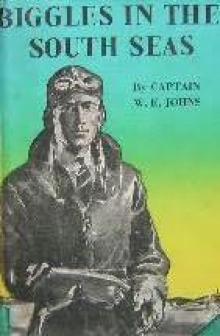 21 Biggles In the South Seas
21 Biggles In the South Seas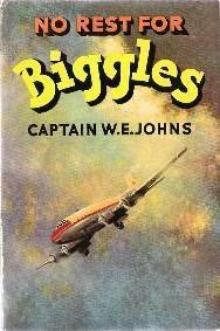 No Rest For Biggles
No Rest For Biggles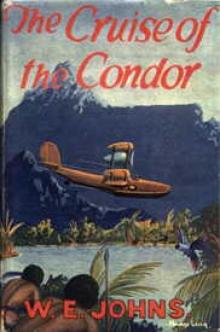 Biggles In The Cruise Of The Condor (02)
Biggles In The Cruise Of The Condor (02)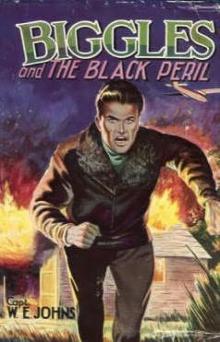 06 Biggles And The Black Peril
06 Biggles And The Black Peril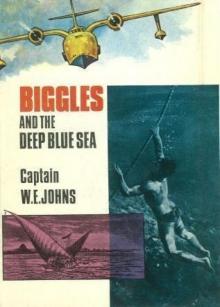 Biggles and the Deep Blue Sea
Biggles and the Deep Blue Sea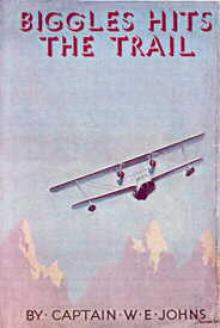 06 Biggles Hits The Trail
06 Biggles Hits The Trail 39 Biggles Goes To School
39 Biggles Goes To School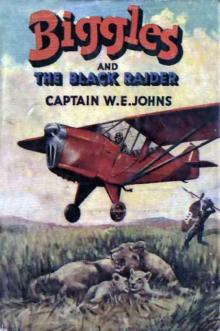 44 Biggles and the Black Raider
44 Biggles and the Black Raider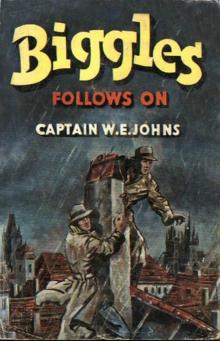 42 Biggles Follows On
42 Biggles Follows On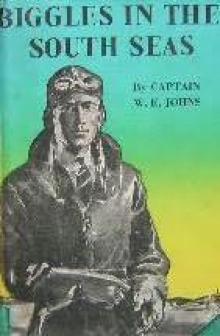 Biggles In the South Seas
Biggles In the South Seas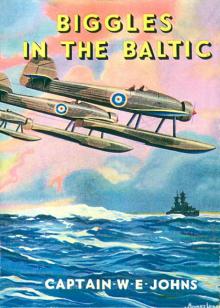 21 Biggles In The Baltic v3
21 Biggles In The Baltic v3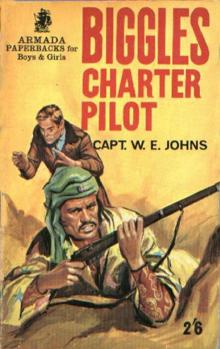 27 Biggles - Charter Pilot
27 Biggles - Charter Pilot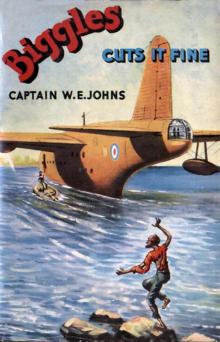 49 Biggles Cuts It Fine
49 Biggles Cuts It Fine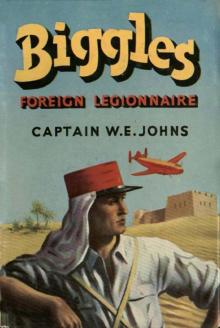 51 Biggles Foreign Legionaire
51 Biggles Foreign Legionaire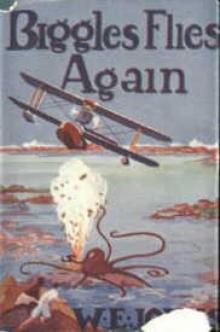 04 Biggles Flies Again
04 Biggles Flies Again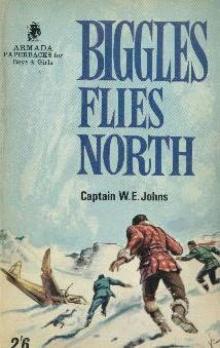 16 Biggles Flies North
16 Biggles Flies North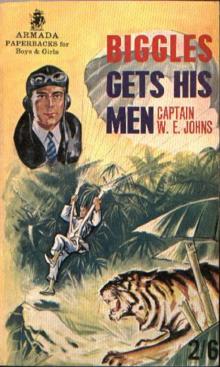 37 Biggles Gets His Men
37 Biggles Gets His Men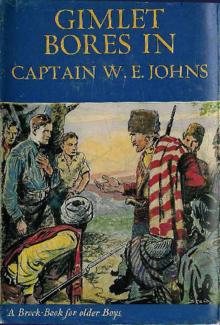 07 Gimlet Bores In
07 Gimlet Bores In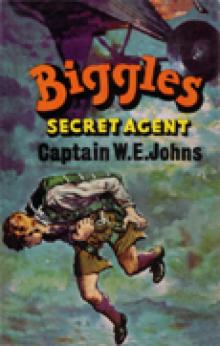 19 Biggles Secret Agent
19 Biggles Secret Agent 32 Biggles In The Orient
32 Biggles In The Orient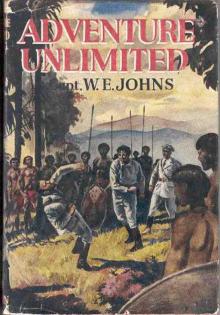 Adventure Unlimited
Adventure Unlimited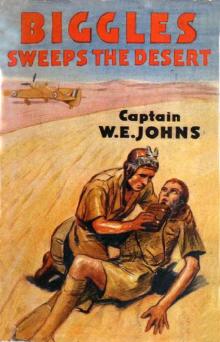 26 Biggles Sweeps The Desert
26 Biggles Sweeps The Desert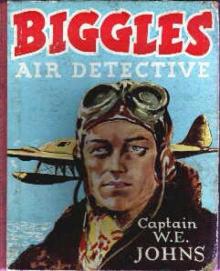 Biggles Air Detective (43)
Biggles Air Detective (43) 36 Biggles Breaks The Silence
36 Biggles Breaks The Silence 14 Biggles Goes To War
14 Biggles Goes To War 18 Biggles In Spain
18 Biggles In Spain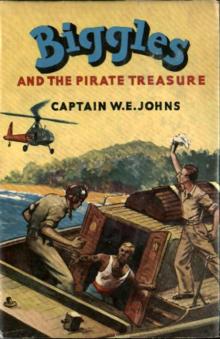 50 Biggles and the Pirate Treasure
50 Biggles and the Pirate Treasure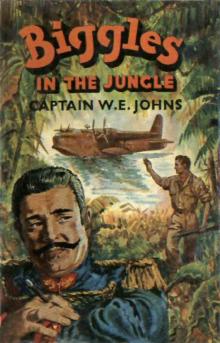 25 Biggles In The Jungle
25 Biggles In The Jungle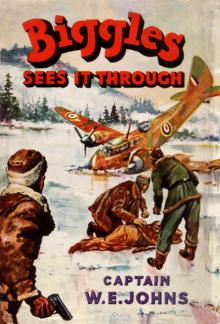 23 Biggles Sees It Through
23 Biggles Sees It Through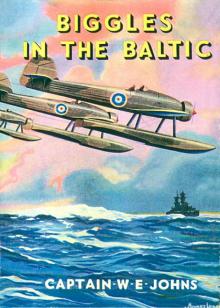 21 Biggles In The Baltic
21 Biggles In The Baltic 24 Spitfire Parade
24 Spitfire Parade 38 Another Job For Biggles
38 Another Job For Biggles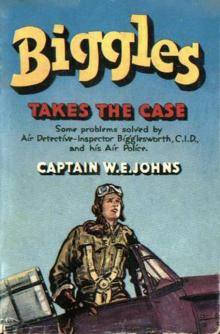 41 Biggles Takes The Case
41 Biggles Takes The Case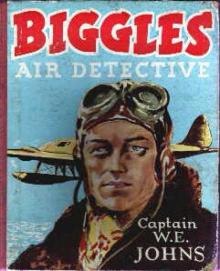 43 Biggles Air Detective
43 Biggles Air Detective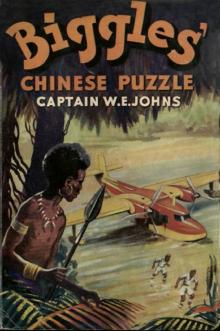 53 Biggles Chinese Puzzle
53 Biggles Chinese Puzzle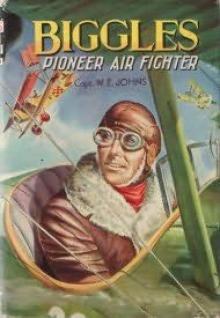 Biggles Pioneer Air Fighter (51)
Biggles Pioneer Air Fighter (51) 22 Biggles Defies The Swastika
22 Biggles Defies The Swastika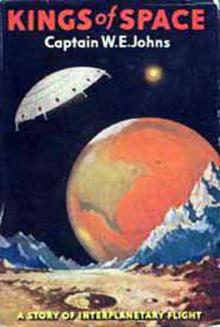 01 Kings Of Space
01 Kings Of Space